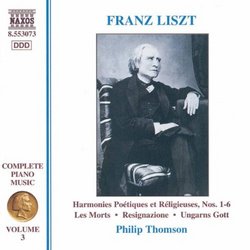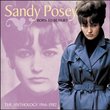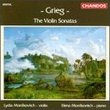| All Artists: Franz Liszt, Philip Thomson Title: Liszt: Complete Piano Music, Vol. 3 Members Wishing: 0 Total Copies: 0 Label: Naxos Release Date: 8/5/1997 Genre: Classical Styles: Opera & Classical Vocal, Forms & Genres, Short Forms, Suites, Instruments, Keyboard Number of Discs: 1 SwapaCD Credits: 1 UPC: 730099407328 |
Search - Franz Liszt, Philip Thomson :: Liszt: Complete Piano Music, Vol. 3
 | Franz Liszt, Philip Thomson Liszt: Complete Piano Music, Vol. 3 Genre: Classical
|
Larger Image |
CD DetailsSimilar CDs |
CD ReviewsAlmost makes "Benediction" seem short John Landkamer | Bothell, WA USA | 12/28/2002 (4 out of 5 stars) "This pianist whips up real excitement in "Benediction." I find myself conducting and playing "air piano" at the climactic moments. Thomson often makes alterations to the written score. Sometimes Liszt's dynamic markings are ignored; at other times, melodic lines are reinforced with octave doublings. These changes are pretty clearly motivated by nothing more than a desire to communicate the emotion of the piece as vividly and powerfully as possible, and as such would likely meet with approval from Liszt. His disdain was reserved for those who played without feeling, and that's certainly not the case here."Benediction," like quite a few of Liszt's works, has a reputation for seeming too long. It's a credit to Thomson that he almost leaves you wanting more, after sixteen minutes." Great performance by a multitalented pianist Masato Nakazawa (maliszt@ucla.edu) | LA | 11/11/1999 (5 out of 5 stars) "I personally like this performance of Harmonies Poétiques et Réligieuses by Thomson more than any sets by other performers. These Pensée des morts and Bénédiction de Dieu dans la solitude are the best available in the market. God bless you!" The Poetic Side of Liszt - The Premium Side of Naxos Hexameron | 06/29/2006 (5 out of 5 stars) "This recording presents a side of Liszt's music that tends to be ignored: his manifestations of reverie, ecstasy, pain, religion, death, and introspection. All of these ideas and more can be found in Liszt's greatest collection of piano works, the "Harmonies Poetiques et Religiuses," which amount to real profundity and power in the hands of the relatively obscure pianist, Philip Thomson. It should be noted that in this Volume only parts of Liszt's complete "Harmonies Poetiques et Religieuses" are featured. The rest will follow in the Liszt: Complete Piano Music, Vol. 4.
Liszt spent roughly five years of composition, revision, and even deletion of pieces for the piano cycle, "Harmonies Poetiques et Religiuses." The two opening works, "Invocation' and "Ave Maria" reveal Liszt's newfound compositional powers in his early Weimar days. The textures of these two pieces are unique, even chorale-like, while the nature of the music is prayerful and enraptured with religiosity. The most famous piece from the set, "Benediction de Dieu dans la solitude," is a 16-minute composition of incredible passion and exertion. I've heard the interpretations of Berman, Hough, Brendel and others, but Thomson plays the piece with fine sensitivity, sharp articulation, and always a passionate flare. In my opinion, the work of genius in this piano cycle and the piece which can easily justify buying this CD, is the sublime "Pensee des morts," or "Thought of the Dead." I love what Philip Thomson says about it: "If the Benediction causes us temporarily to surrender our rationality to its ecstasy, the Pensee des Morts is an ascent into sheer madness." He is right. This is serious music exemplified by the deathly quiet opening and the subsequent wailing marked "Lamentoso," where Liszt ventures into utter desolation and sorrow. In a single stunning passage he manages to musically depict insanity brought on by agony, followed by the simplicity of exaltation. Liszt explores pain, meditation, hope, and culminates with transcendence that few composers can boast to have achieved. Thomson believes this is "one of the most powerful arguments ever made for the ability of music to communicate things that cannot be otherwise expressed." Thus one can expect enduring passion and respect for the work in Thomson's performance. I might remark on Thomson's tempo and dynamics, for example, which move and breathe to produce heart-wrenching sounds. The significant "Les Morts" is also worth mentioning. It is a funeral ode inspired by the death of Liszt's son, Daniel, and as such, expresses the misery of losing a loved one. Although the music floats in melancholy, Liszt never dwells entirely on death. In the latter half of the work he emphasizes hope and recovery through prayer, eventually bringing the music to a victorious mood reminiscent of the passion in "Benediction." Bottom line: With all the focus that tends to be made on Liszt's Hungarian Rhapsodies and Etudes, so many listeners might be missing out on elevated and underrated music like the "Harmonies Poetiques et Religieuses." After hearing the variegated deliveries from pianists like Berman or Bolet, Thomson's inspired playing is astonishing. His kind of artistry and feeling makes this CD worth having for both Lisztophiles and newcomers to Liszt's music." |

 Track Listings (9) - Disc #1
Track Listings (9) - Disc #1


